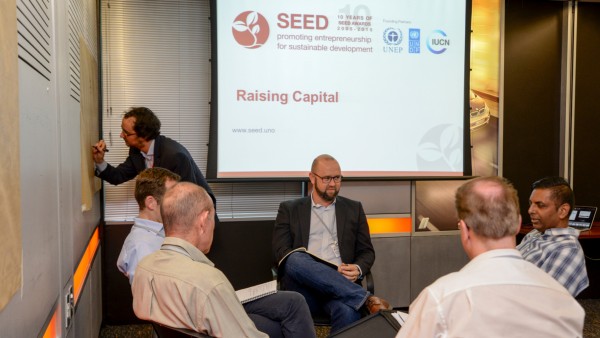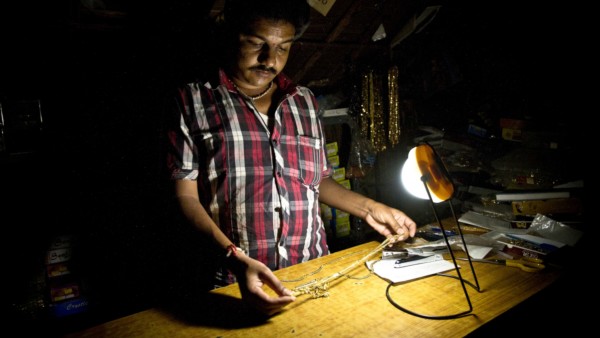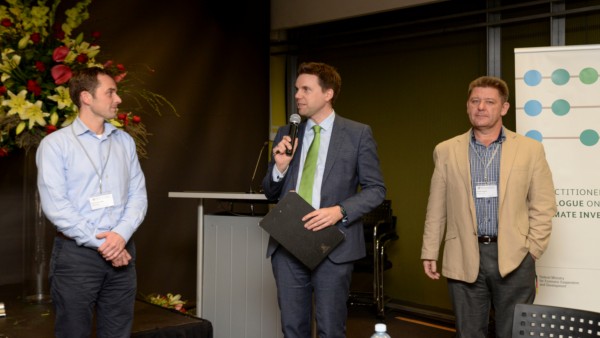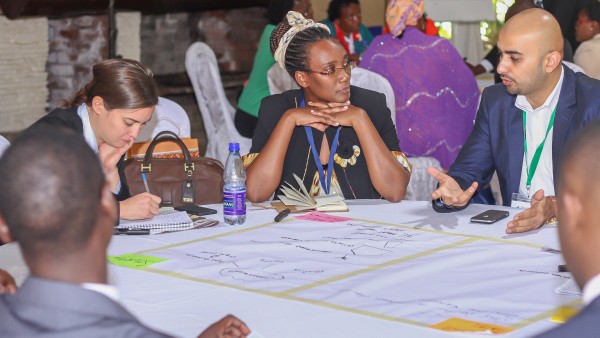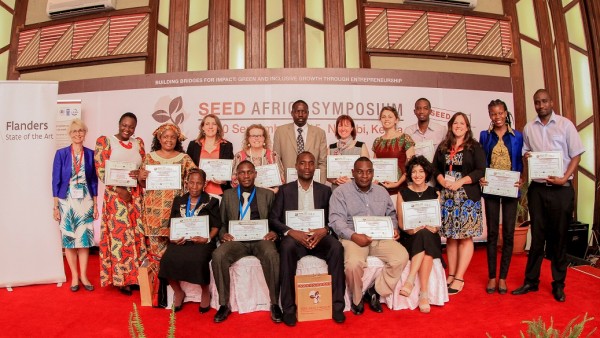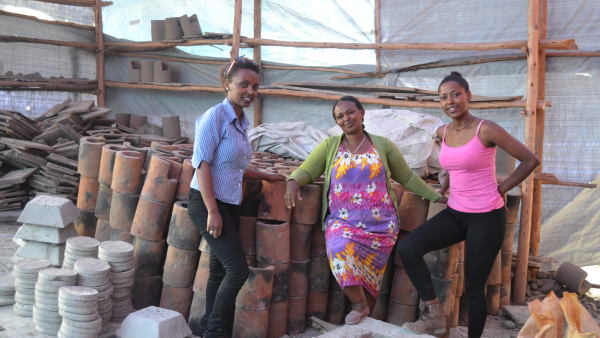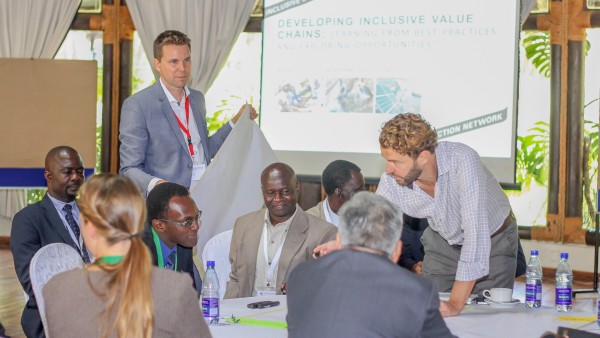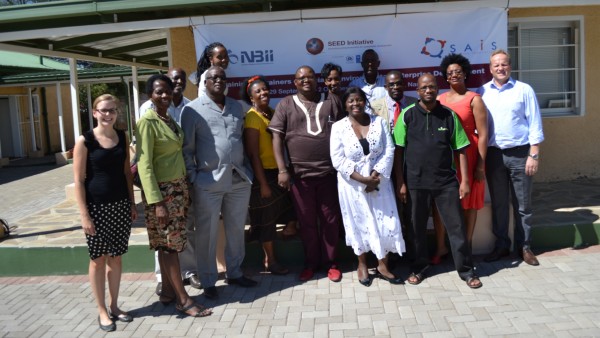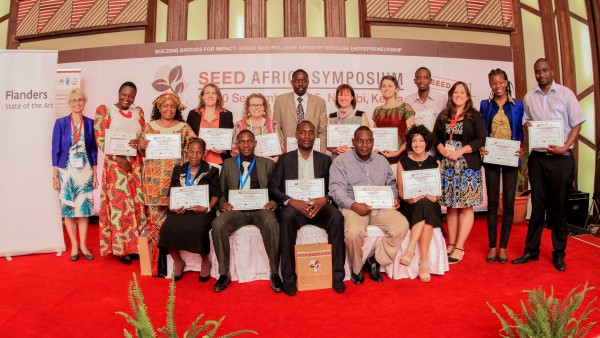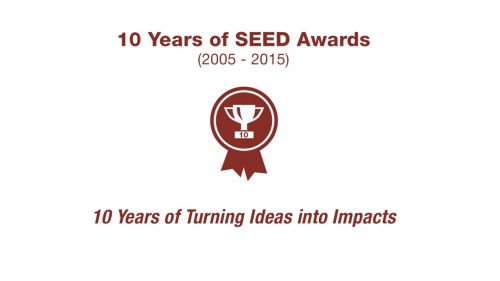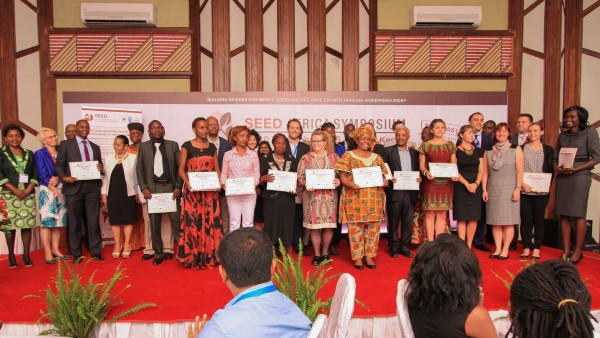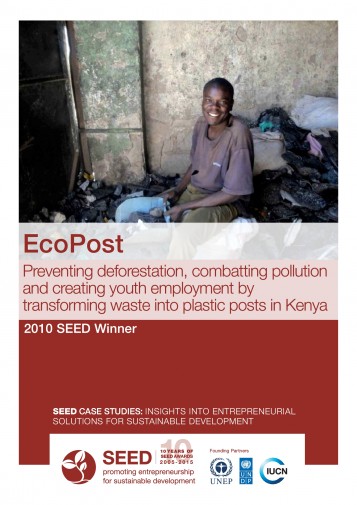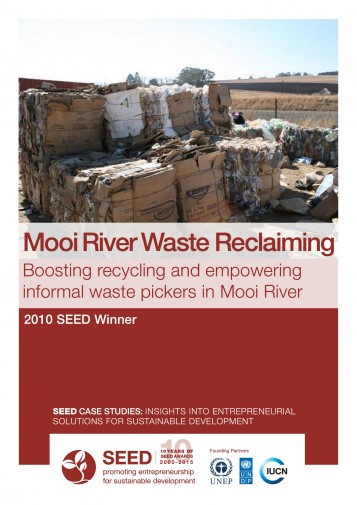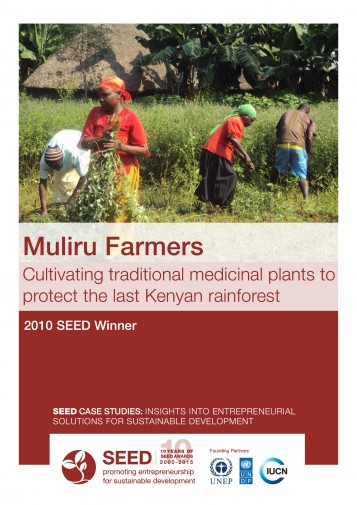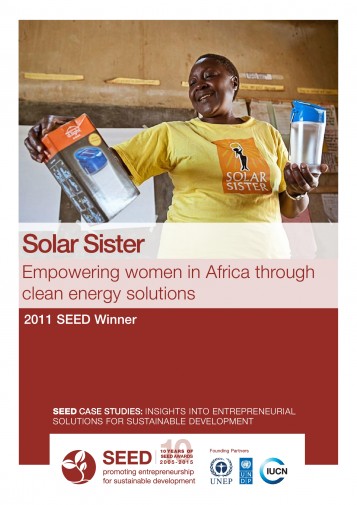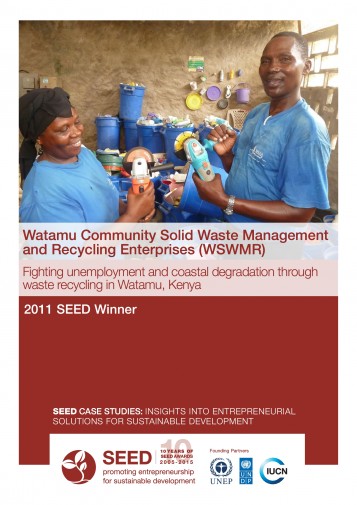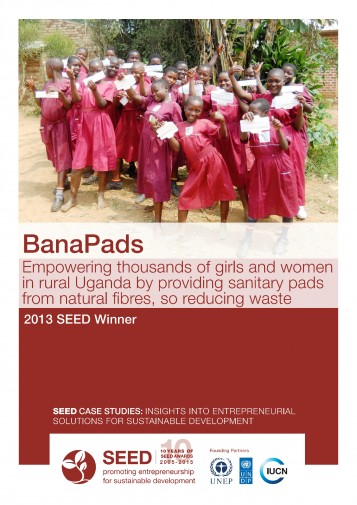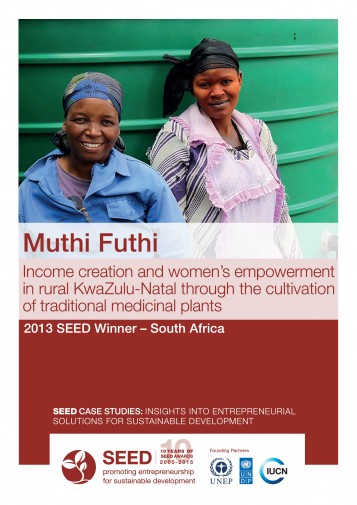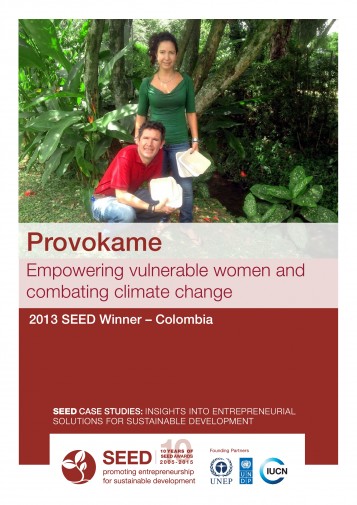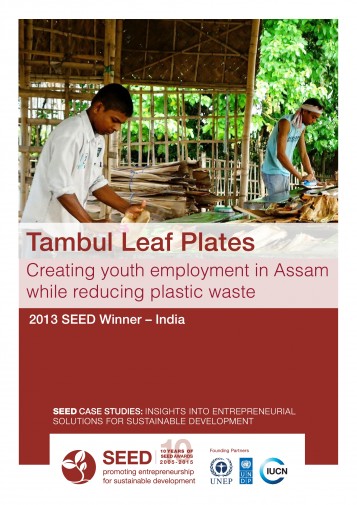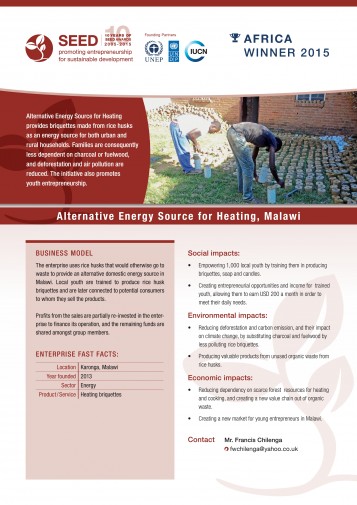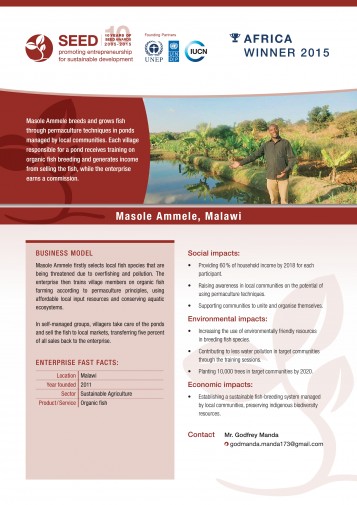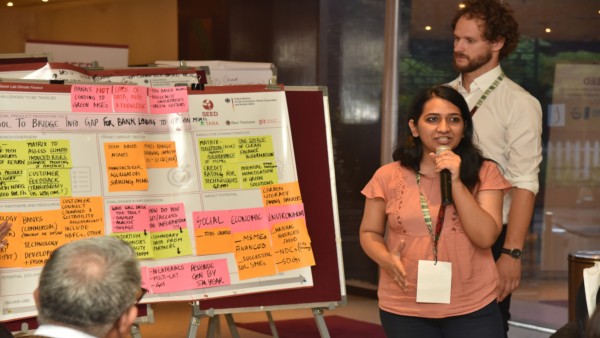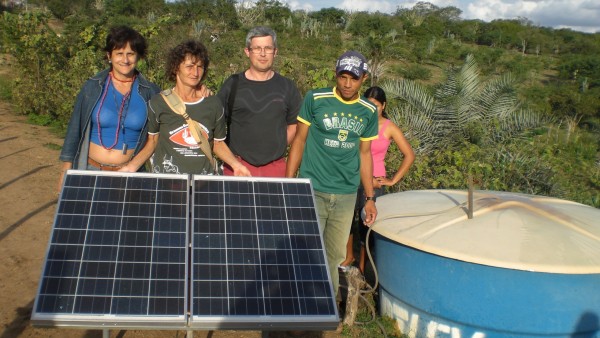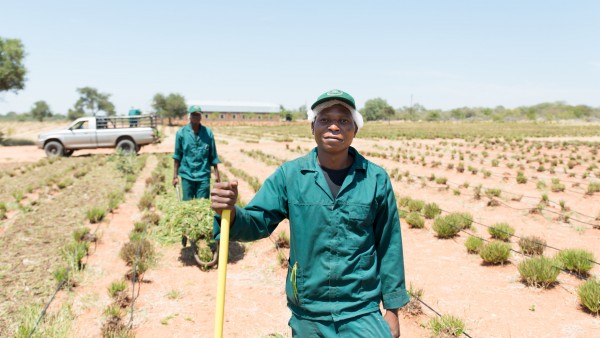The role of finance in addressing climate change—but where is the conversation around SME’s?
Published: 07 December 2015 Allison Robertshaw
It would be an understatement to say that finance is one of the big issues being discussed at COP21. I’ve managed to pop into a number of side events on the topic and it comes up in even the most casual of conversations. Read more
SDGs:





Investment, Research, Innovation... and SMEs?
Published: 03 December 2015 Allison Robertshaw
Is it not time that we start to build green technology development capacity in developing countries? Read more
SDGs:





The climate negotiations in Paris - What does it mean for the green SME community?
Published: 25 November 2015 Allison Robertshaw
In just five days, politicians, policy makers, NGOs, businesses, entrepreneurs and activists will head to Paris, for the 21st Conference of the Parties (COP), to see whether the world can hammer together an agreement to move the world away from catastrophic climate change before time runs out. Will they be successful? Read more
SDGs:











Has our obsession with scale blinded us as to the real way to have impact?
Published: 18 November 2015 Allison Robertshaw
When I was in Nairobi a few weeks ago, our team at SEED brought together more than 500 people at our 2015 SEED Africa Symposium to discuss the latest developments in social and environmental entrepreneurship. Read more
SDGs:





SEED Africa Symposium 2015
Published: 09 November 2015
More than 500 entrepreneurs, researchers, policy makers and representatives of the civil society from 30 countries joined the SEED Africa Symposium on September 9-10th, 2015, in Nairobi, Kenya. Read more
Cutting down trees for survival: How women can provide an alternative source of energy
Published: 06 November 2015 Anais Mangin
"Then the refugees came and started to cut down trees and soon there was no forest left, (..) The locals also chopped trees and made charcoal to sell to the refugees." (UNHCR, 1996) Read more
SDGs:











Shaping Sustainable Development Policies to Scale the Impacts of Eco-entrepreneurship
Published: 20 October 2015 Amélie Heuër
A few weeks ago I was in Nairobi where we (SEED) held our annual SEED Africa Symposium. The event was the biggest one yet, with over 500 representatives from government agencies, the private sector, civil society organisations and academic institutions from 34 countries; all gathering to build bridges for impact. Read more
SDGs:













Boosting support for social and environmental entrepreneurship in Namibia
Published: 15 October 2015 Julia Rohe-Frydrych
Small, micro and medium enterprises (SMMEs) contribute an estimated 12 per cent towards Namibia’s gross domestic product and employ about 20 per cent of the country’s workforce. Read more
SDGs:





Setting the Stage for Green & Inclusive Growth through Entrepreneurship
Published: 02 October 2015 Carolin Ehrensperger, Jana Rudnik
"Where many conventional start-up enterprises fail after only two years, more than three out of four SEED Winners have not, that is the major outcome of this flagship report“, Ibrahim Thiaw, UNEP Deputy Executive Director and UN Assistant-Secretary-General. Read more
SDGs:









Celebrating 10 Years of SEED Awards (2005-2015)
Published: 22 September 2015
Ten years ago, at the United Nations Conference on Sustainable Development (UNCSD) in New York, 5 enterprises received the first SEED Awards. They were chosen, from a pool of over 260 entries from 66 countries, for their potential to advance sustainable development in their communities and contribute to the UN's Millennium Development Goals. Read more
Plates from Fallen Leaves, Bricks from Plastic Waste and Sight Saving Mobile Apps – Green Innovation Highlighted at 2015 SEED Awards
Published: 09 September 2015
27 eco-inclusive enterprises are recognized at the 2015 SEED Africa Symposium. Read more
SDGs:











Case Study: Eco Post
Published: 07 September 2015
EcoPost produces posts and building materials from recycled plastic waste in Nairobi. This reduces pollution, preserves forests, and decreases greenhouse gas emissions. Read more
SDGs:







Case Study: Mooi River Waste Reclaiming
Published: 07 September 2015
Mooi River Waste Reclaiming contributes towards climate change mitigation, conservation, and reduction of air, land and marine pollution by collecting, compacting and selling recyclable waste. Read more
SDGs:











Case Study: Muliru Farmers
Published: 07 September 2015
Muliru Farmers establishes sustainably-farmed supplies of medicinal plants and raises awareness about forest management which reduces the pressure on Kenya’s last remaining rainforest. Read more
SDGs:









Case Study: Solar Sister
Published: 07 September 2015
Solar Sister addresses energy poverty in rural Uganda, Nigeria And Tanzania by providing clean energy products to off-grid communities, while at the same time combatting climate change. Read more
SDGs:











Case Study: Watamu Community Solid Waste Management and Recycling Enterprises
Published: 07 September 2015
Watamu Solid Waste Management and Recycling helps conserve coastal and marine biodiversity by recycling plastic and glass waste. Read more
SDGs:







Case Study: BanaPads
Published: 07 September 2015
BanaPads produces affordable, effective and hygienic sanitary pads for women in Uganda, made from the natural fibres of banana plant trunks that are an abundant organic waste in agriculture. Read more
SDGs:









Case Study: Muthi Futhi
Published: 07 September 2015
Muthi Futhi protects local biodiversity by cultivating and processing endangered indigenous medicinal plants. Read more
SDGs:









Case Study: Provokame
Published: 07 September 2015
Provokame produces biodegradable plates out of natural fibre and seeds and recycles paper; this reduces pollution from polymer plates and decreases greenhouse gas emissions. Read more
SDGs:













Case Study: Tambul Leaf Plates
Published: 07 September 2015
Tambul Leaf Plates has generated employment or additional income for 3,000 rural community members while reducing pollution from plastic and polystyrene foam plates by over 100 tonnes. Read more
SDGs:











Enterprise Brief: Alternative Energy Source for Heating
Published: 06 September 2015
Alternative Energy Source for Heating provides briquettes made from rice husks as an energy source for both urban and rural households. Families are consequently less dependent on charcoal or fuelwood, and deforestation and air pollution are reduced. The initiative also promotes youth entrepreneurship. Read more
SDGs:









Enterprise Brief: Masole Ammele
Published: 06 September 2015
Masole Ammele breeds and grows fish through permaculture techniques in ponds managed by local communities. Each village responsible for a pond receives training on organic fish breeding and generates income from selling the fish, while the enterprise earns a commission. Read more
SDGs:









The next challenge for impact investing: Scaling up support to early stage social enterprises
Published: 13 August 2015 Bertil van Vugt, Mirko Zürker
The growth and success of green and inclusive business models with high impact potential is central to the challenges many emerging economies are facing. Read more
SDGs:







Water for Life – innovative and entrepreneurial ways of storing water in semi-arid regions of Brazil
Published: 30 July 2015 Carolin Ehrensperger, Daniele Cesano, Thais Corral
Access to water is not only about meeting basic human needs; it is critical to sustainable development, too. Read more
SDGs:














